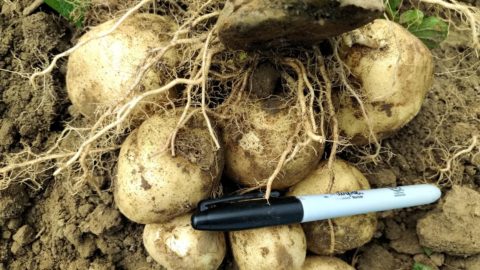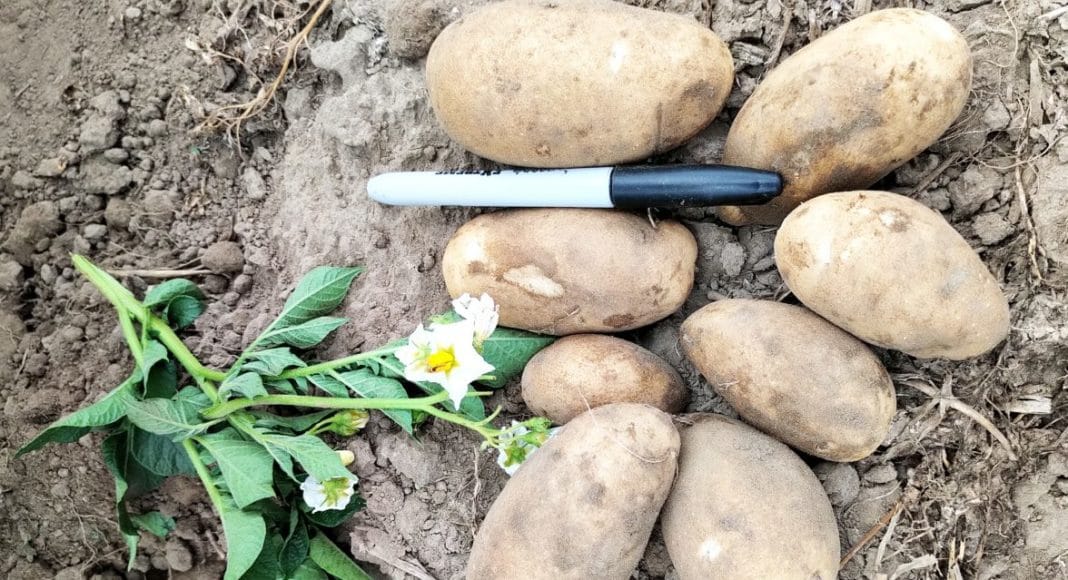According to Mark VanOostrum, the harvest of the early processing crop is going well. The yield is average, solids are slightly higher and a little bit of common scab is showing up.
I am not surprised to hear about scab this season; common scab is more aggressive in dry years. It appears that the beneficial bacteria, which compete with scab, suffer more than scab when it is dry. This results in more scab on the tubers.
In Norfolk County, Joe Lach said the harvest weather has been great and the cooler temperatures at night are welcome. He says they are seeing a bit of black cutworm damage, so those pests are out there. “Business is good, and we are very busy, as we have started digging all three colours [whites, yellows and red potatoes].”
The Alliston, Ont., area continues to be dry. There has been rain here and there but not a steady, soaking rain of at least an inch or so. Irrigation is still the order of the day now that most of the fields near Alliston are entering the bulking stage.
On August 1, I dug a hill of Dakota Pearls near Shelburne and a hill of Lamoka near Alliston, both from irrigated fields. The tuber size was good for both samples, and yields should be above 300 cwt. There were nymphs of tarnished plant bugs on the Lamokas and a few plants with blackleg in both fields. This is to be expected in irrigated fields in the rows right beside the sprayer tracks.

All five of my on-farm variety trials look outstanding! There will be samples of many new varieties displayed at the Potato Field Day on August 22. I have attached a photo of River Russet planted on June 21 in the trial at Tupling Farms. This is an early maturity, dual purpose russet, for fresh market and processing. A word of caution: River Russet is very susceptible to Sencor applied at post-emergence.
All of the filters in the spore traps from August 2-9 in Dufferin, Simcoe and Norfolk counties trapped spores of late blight. A & L’s tests for DNA use PCR methods that are very sensitive and capable of detecting very small amounts of DNA.
There is another type of spore trap that spins glass rods coated with a gel in the air above the crop canopy. The rods are removed and checked under the microscope to identify spores of late blight. These rotorod spore traps have also found late blight spores in tomato fields near Ridgetown, but did not detect spores as early as the PCR methods.











